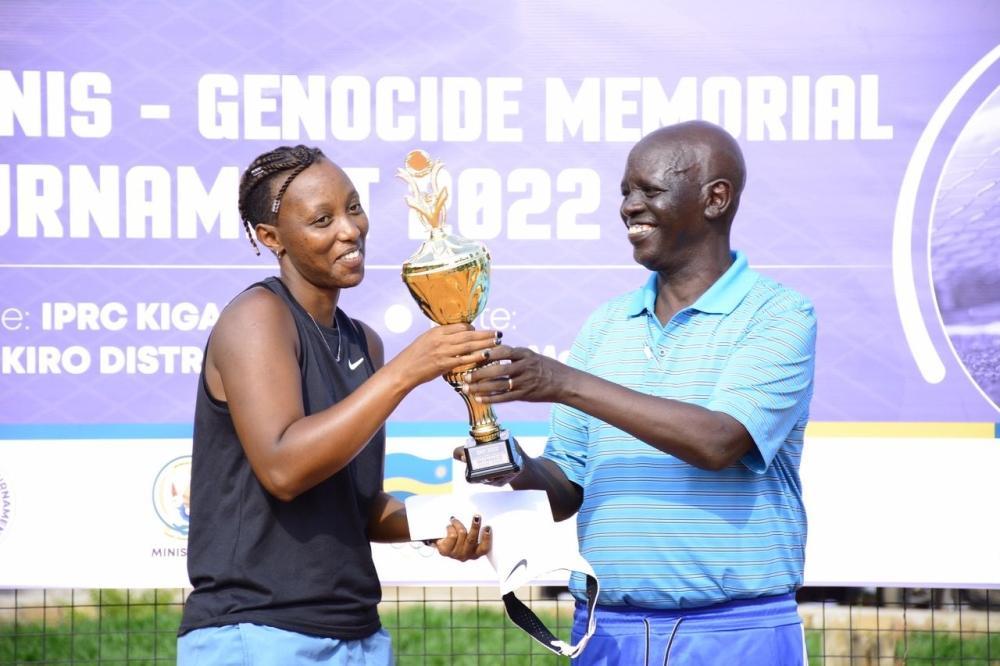Africa-Press – Rwanda. This month, Rwanda solemnly marks 31 years since the 1994 Genocide against the Tutsi, a horrific event in which over one million lives were lost in just 100 days.
Among the victims were thousands of sportsmen and women, individuals who once brought joy, unity, and pride to their communities.
The genocide tore the nation apart, pitting neighbor against neighbor, leaving behind deep emotional, psychological, and social scars.
Yet, three decades on, Rwanda has risen from the ashes. The country has not only found its footing among civilized and functioning states but has become a model of resilience, progress, and national healing.
One of the most powerful, though sometimes understated, tools in Rwanda’s journey toward reconciliation has been sports, for it’s a fact that nothing brings people together and unites them like this particular form of entertainment.
And in post-genocide Rwanda, sports has emerged as more than a form of entertainment or physical activity. It has become a bridge—linking communities and families once divided by hate, mistrust, and trauma.
This is particularly vital in a society where rebuilding trust is central to national cohesion.
There is no doubting that sports has played a significant role is raising Rwanda’s profile at the global level, from a country ravaged by the 1994 Genocide to the current state where international bodies entrust the country with responsibility to organize international competitions.
Locally, the government and various community-based initiatives have actively harnessed the power of sports to promote peace and unity.
Events such as the annual Kwibuka football, cricket, volleyball, handball and basketball tournaments serve not only as a tribute to the victims of the genocide but also a platform for survivors and former perpetrators—now reintegrated into society—to come together, compete, and reconnect one way or another, consciously or otherwise.
Grassroots sports initiatives have played a significant role in encouraging dialogue among youth, many of whom did not directly witness the genocide but carry its legacy.
Sports works its magic through programs that focus on teamwork and mutual respect. So, young Rwandans from different backgrounds learn to value each other as teammates, not adversaries.
These efforts have helped shape a generation that identifies more with unity than divisions.
Internationally, Rwanda’s growing role as a host for major sporting events has further bolstered its image as a peaceful and progressive nation.
From the Basketball Africa League (BAL), the Tour du Rwanda, and ATP Challenger (50, 75 and 100) tournaments, to the upcoming UCI World Road Championships, the country has proven its capability and commitment to peace through sports diplomacy.
Sports has not only fostered internal healing but has also placed Rwanda on the global stage as a preferred destination for major competitions.
These events attract thousands of visitors and broadcast Rwanda’s story of transformation to the world. When Rwanda wins, every Rwandan is a winner regardless of background.
The anticipated hosting of the Formula 1 Grand Prix in the near future is a testament to how far Rwanda has come—from a war-ravaged nation that sunk to the lowest of humanity to a vibrant, modern centre of excellence and hospitality.
Moreover, sports offer an inclusive platform where gender, ethnicity, and background take a backseat to talent, discipline, and teamwork.
This impartial nature of sports helps dismantle lingering prejudices and encourages shared national pride.
Even from the outside, it’s not too hard no see through the fact that Rwanda’s success in using sports as a reconciliation tool is not accidental.
It reflects a well-thought-out national vision that views sports as a powerful social fabric. It is an ongoing reminder that while the past cannot be changed, the future can be rewritten—together.
As the country continues to commemorate the lives lost in 1994, it also celebrates the remarkable strides made since.
In stadiums, on courts, and along cycling routes, Rwandans continue to write a new chapter—one of unity, brotherhood, and forgiveness—guided by the enduring spirit of sports.
Indeed, in Rwanda’s long and challenging journey from division to reconciliation, sports has proven to be more than a game; but a path to healing, at national, communal and individual levels.
Now, the onus is on the people of this beautiful nation of a thousand hills not to rest of their laurels, believing all is well, for the fight against the Genocide ideology is as continuous and tedious as life itself.
For More News And Analysis About Rwanda Follow Africa-Press






